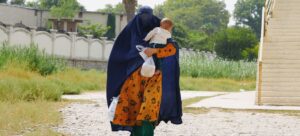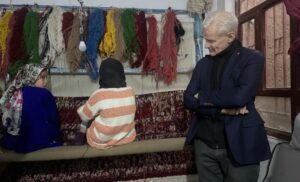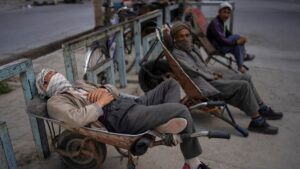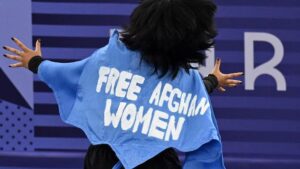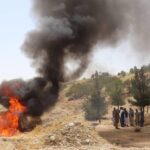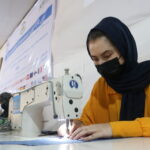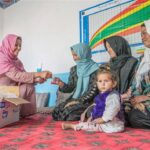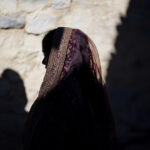The shooting of 14 residents of Daykundi province in border areas with Ghor province has faced widespread reactions and condemnations from citizens, political groups, and international organizations.
Many citizens, political groups, and international bodies have described this attack as part of the ongoing “targeted attacks” and “genocide” against the Hazara-Shia people in Afghanistan, condemning it and calling for accountability and punishment for those responsible for these events.
The Justice and Freedom Party of Afghanistan issued a statement condemning the incident, stating: “What happened today in Daykundi is part of the systematic genocide of Hazaras and is a sign of bitter and painful events to come.”
Additionally, some protesting women and members of the “Window of Hope Women’s Movement” released a statement saying that the Hazaras have been experiencing “genocide” in Afghanistan for over a century. This movement has called on the United Nations and global human rights organizations not to overlook the crimes against the Hazaras.
They also urged these organizations to recognize the “genocide of Hazaras” and to prosecute and punish those responsible.
Furthermore, the Afghanistan Freedom Front issued a statement indicating that all victims of this attack belong to the Hazara ethnic group, labeling it as “genocide” and a “crime against humanity.” This front added that targeted killings and similar incidents had previously been reported from Daykundi and Ghor provinces, noting that in the past three years, “hundreds” of families from these two provinces have been subjected to “forced displacement.”
The statement read: “Stopping ordinary civilian passenger vehicles and repeatedly shooting at them without any justification is a clear example of war crimes and crimes against humanity.”
Former Afghan President Hamid Karzai described this attack as a “brutal massacre” and “a terrorist act and crime against humanity and Islam,” condemning it.
Atta Mohammad Noor, a leader of the Islamic Unity Party of Afghanistan, also condemned this attack, stating: “This event is part of the targeted killings occurring in areas under the control of the current government, with the primary targets being followers of Shia Islam and the honorable Hazara people.”
Abdullah Abdullah, former head of the High Council for National Reconciliation in Afghanistan, also referred to this attack as a “merciless massacre” and condemned it.

The current government is responsible
The Islamic Unity Party of Afghanistan has also reacted to this attack by issuing a statement, stating: “The responsibility for this tragedy, which is part of a chain of massacres and systematic killings against Hazaras and Shia people in Afghanistan, lies with the Emirate.”
It further mentions that on one hand, the interim government is responsible for the security of these areas, and on the other hand, it has increased “anti-Shia” propaganda. Such propaganda has made the Hazara community a target, putting their lives at risk.
Mohammad Karim Khalili, the leader of the Islamic Unity Party of Afghanistan, responded to this attack by saying that the government’s claims of providing security are “lies” and “deception.”
Mr. Khalili stated in a released statement: “While criminal terrorists carry out this massacre against innocent and defenseless people, responsible government officials had recently assured residents of complete security in this area. However, this crime clearly shows that these claims are nothing but lies and deception.”
He added that “the ruling group and their local and central officials must be held accountable for this massacre and other atrocities that we witness from time to time across the country, where the Hazara and Shia people are systematically targeted due to their ethnicity and religion.”
Nader Nadiri, former head of the Independent Administrative Reform and Civil Service Commission and a member of the peace negotiating team with the current government, stated: “The shooting of 14 of our civilians on the road from Ghor to Daykundi is an unforgivable crime and a continuation of the inhumane practices that violent groups have imposed on our people over the past twenty years.”
At the same time, many citizens of the country view this attack as part of the ongoing “targeted” and “systematic” assaults against Hazaras aimed at their “genocide.”
Social media users in Afghanistan have reacted to this attack using the hashtag “Stop Hazara Genocide,” criticizing the interim government’s policies toward Hazaras and Shias.
This comes after armed motorcyclists shot 14 residents of Daykundi and injured six others in the area between the village of Qaryodal in the Sangtakht district of Daykundi province and the village of Pahlusang in Ghor province on Thursday afternoon (September 22).
These individuals were residents of Qaryodal village who had gone to the border areas of Ghor province to welcome pilgrims returning from Karbala.
The Khorasan branch of ISIS claimed responsibility for this attack, stating that 15 Shia individuals were killed and six others were injured.
It should be noted that Hazara travelers have previously been stopped and shot at multiple times on the route between Ghor and Daykundi.


